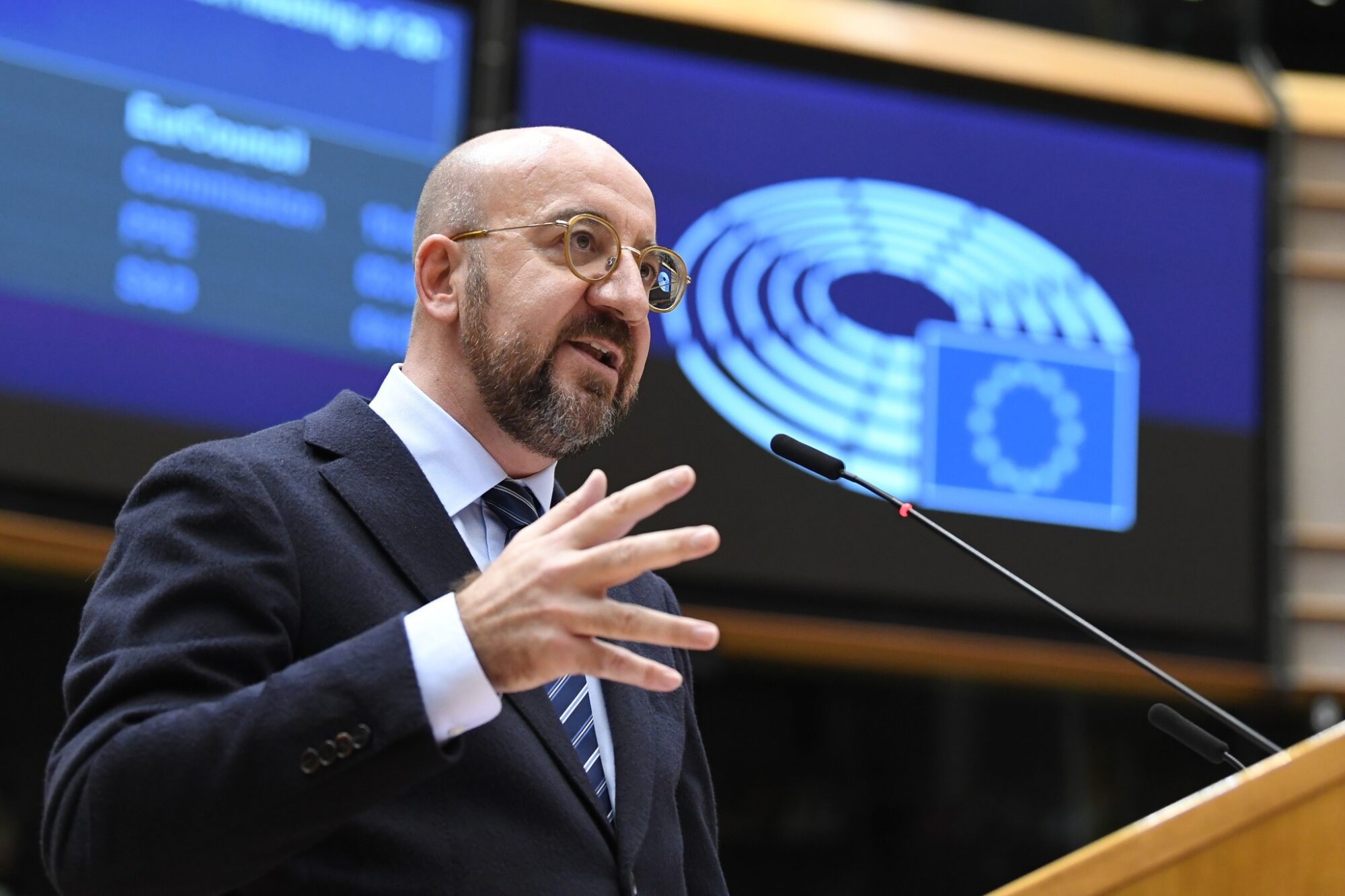
The EU’s collective impoverishment, due to mammoth energy costs and soaring inflation, has met with resistance. European Council President Charles Michel has called upon EU Commission Chief Ursula von der Leyen to promptly deliver on natural gas caps.
Michel’s report, presented to the European Parliament on November 9th, began by calling to mind growing impatience toward the EU’s inability to make a decision on price caps. He asserted that “citizens and families facing astronomical gas and electricity bills,” are waiting along with “businesses, large and small, hit by unsustainable energy costs and inflationary pressures,” and “many European governments, worried about their shrinking budgetary margins.”
He went on to note that the European Council had “on many occasions” asked the Commission, the European Union’s executive branch, to “make concrete proposals in three areas: to curb energy prices, to ensure security of supply, and to reduce demand.”
Last month, EU leaders tasked the Commission with proposing a temporary gas price cap as well as a temporary price corridor to bring down costs for consumers.
To aid the Commission in this, the Council (which helps define the EU’s political direction and priorities), had “set out a plan of action with a framework of nine concrete measures.” With these as a reference, it then expected the Commission to “urgently put concrete legislative proposals on the table.” As it thus far has failed to do so, Michel went on to state that “it’s time to act,” and that “kicking the can further down the road is no longer an option.”
Such proposals should, according to Michel, include joint gas purchasing on a voluntary basis, “except for volumes corresponding to 15% of the necessary stocks.” Implementing such a scheme, he noted, would boost the EU’s bargaining power so it could get a better deal.
Negotiations with the EU’s main importers of gas, Norway and the U.S., are “vital,” Michel added. “It doesn’t make sense that the exceptional profits [by these countries] due to the war in Ukraine should make Europeans poorer, our economies weaker, and our industries less competitive, and this just to maintain our gas imports,” he concluded.
Before the war’s start, Russia supplied around 40% of Europe’s gas needs. As part of its agenda to move away from Russian energy, it turned to Norway and the U.S. as alternative sources. Norway is the third largest exporter of natural gas in the world and now supplies between 20% and 25% of EU and UK gas demand by subsea pipelines. In March of this year, the U.S. and EU struck a deal agreeing that the former would increase the export of Liquefied Natural Gas (LNG) to 15 billion cubic meters per year.
Michel observed that, while the price of gas on the international market had “gone down substantially since August,” it still remains much higher than before the war.
He therefore tasked the Commission “with preparing a new complementary benchmark by early 2023,” and that this new benchmark “should better reflect the reality of the European gas market.” Additionally, the Commission needs to make work of a “dynamic price corridor,” which would “reduce price volatility in natural gas transactions,” he said.
Nearing the end of his report, Michel reiterated that he “awaits a proposal [from the Commission] for a temporary cap on the price of gas [exclusively used] for electricity generation.”
Unless action is taken immediately, the current crisis threatens EU industry, Michel urged. “We are already seeing, for instance, the first incentives for our companies to relocate their factories, notably across the Atlantic.” To protect the EU’s competitive edge, “we must closely coordinate our national policies and … mobilize all appropriate financial tools at national and European level to maintain a level playing field within our Union,” he concluded.
Michel’s call for action comes on the heels of a private letter addressed to Ursula von der Leyen personally, which Politico managed to obtain. The letter, dated November 7th (two days before Michel’s presentation), suggests that exasperation over the EU Commission’s delay has reached critical levels.
Whether the EU Commission will be able to fulfill its mission of putting anything concrete on the table soon is in doubt; on November 8th, two diplomats conveyed to Reuters that the Commission had told its 27 member countries at a Monday seminar that it was not possible to create gas price caps that would not hurt long-term contracts or supply security.
These were stipulated as conditions in a compromise agreement between France, Spain, and Belgium (all wanting a cap), and the German-led camp; the latter feared this would lead to an increase in gas consumption [endangering already dwindled supplies) or prompt gas producers to seek other markets.
The issue comes up for debate on Friday, November 11th. All of the 27 EU member countries will be present, where, according to one of the diplomats, “there will be a lot of emotions flying high.”
Afterward, all eyes are on a meeting between the bloc’s energy ministers on November 24th. Should that not bring about a resolution, citizens will have to wait until the next summit of EU leaders, scheduled for December 15th and 16th.
